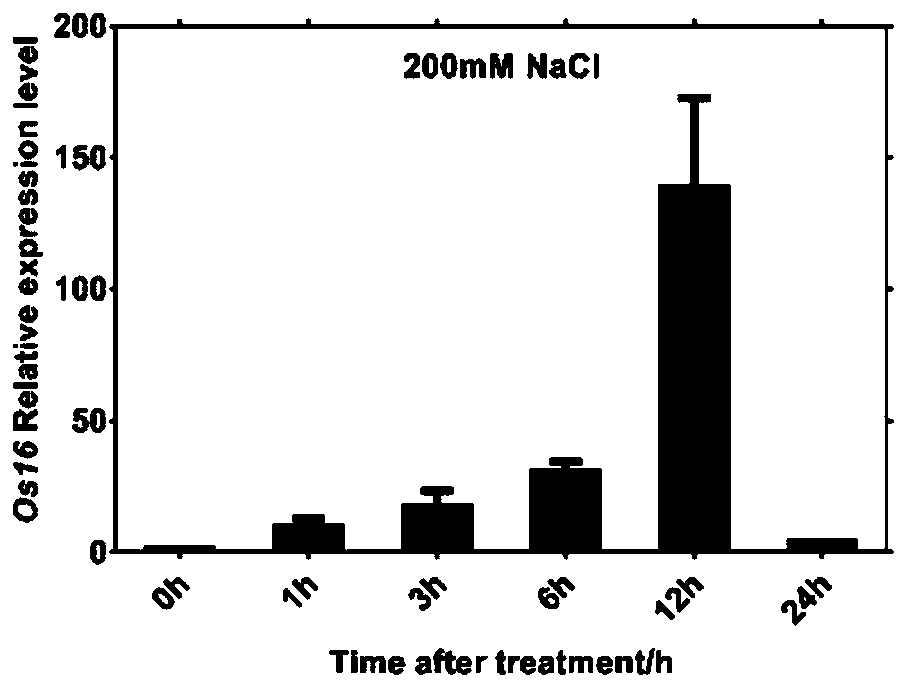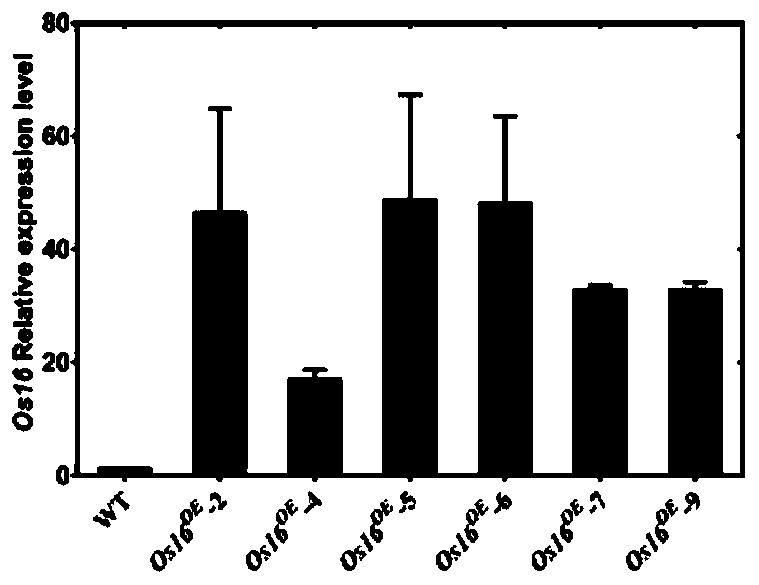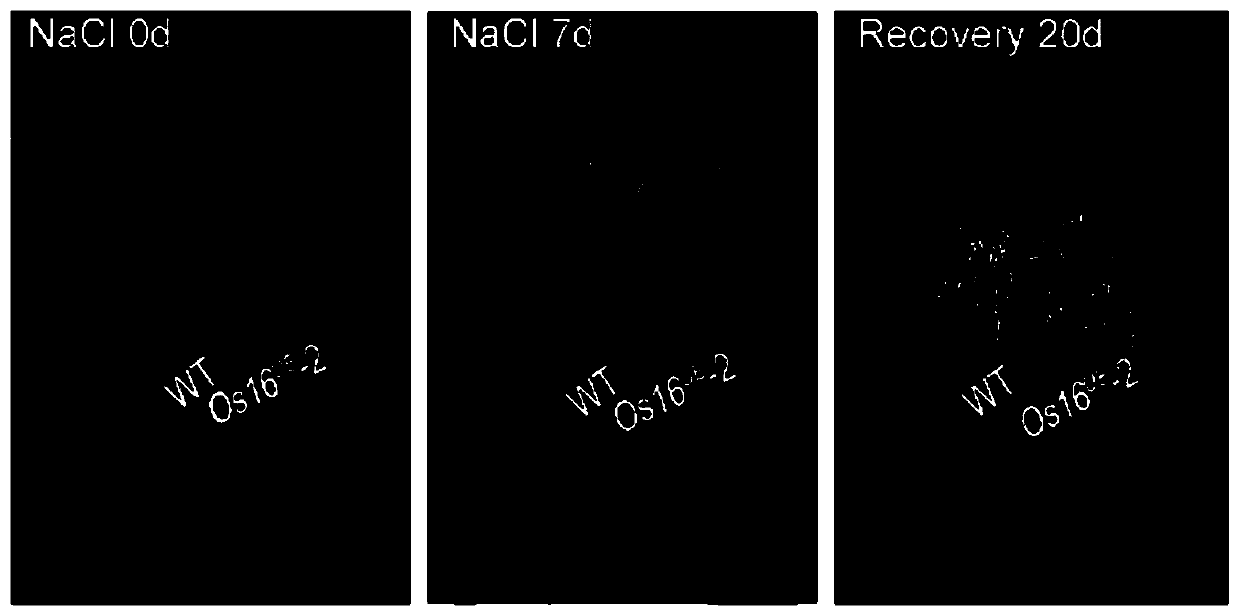Rice salt stress resistance-related gene Os16 and coded protein and application thereof
A technology related to salt stress and resistance, applied in the field of rice genes, can solve problems such as the inability to use saline-alkali land, and achieve the effect of improving resistance and increasing grain production
- Summary
- Abstract
- Description
- Claims
- Application Information
AI Technical Summary
Problems solved by technology
Method used
Image
Examples
Embodiment 1
[0020] Example 1: Obtaining the target fragment of the gene Os16 related to salt stress resistance
[0021] In the present invention, TP309 is used as a material to extract total RNA, and the RNA is reverse transcribed into cDNA by a reverse transcription kit. Using cDNA as a template, high-fidelity enzyme (Primerstar HS DNA Polymerase) can be used to amplify the target fragment. The primer sequences are:
[0022] OE-Os16 For:GTCAATTACTCCCCGAGTTTG
[0023] OE-Os16 Rev: CATGGCCGGAGATCGGCTGAG
[0024] The reaction system for PCR amplification is:
[0025]
[0026] The PCR amplification conditions were pre-denaturation at 94°C for 3 min; denaturation at 94°C for 30 s, annealing at 58°C for 30 s, and 1 min at 72°C for 10 s, with a cycle number of 35 cycles; extension at 72°C for 5 min; and incubation at 4°C.
[0027] Recover the PCR product, and add A tail to the obtained PCR product. A tailing was done using Easytaq DNA Polymerase. No need to add primers, just incubate a...
Embodiment 2
[0029] Embodiment 2: Transformation of Agrobacterium to obtain transgenic rice plants
[0030] Step 1: Obtaining rice callus
[0031] 1. Select TP309 rice seeds and remove the hulls, put them in a 50mL centrifuge tube, and wash them with sterile water for 3 times, each time for 1 min;
[0032] 2. Disinfect the seeds with 75% ethanol three times, 1 min each time, and wash them with sterile water;
[0033] 3. Add 10% sodium hypochlorite solution, evacuate for 8 minutes, then place it on an inversion mixer at 30 n / min, and shake for 20 minutes;
[0034] 4. Wash the sodium hypochlorite solution on the surface of the rice seeds with sterile water, place the seeds on sterilized filter paper and dry them;
[0035] 5. Use tweezers to inoculate the seeds on the NBD medium, and inoculate about 13 rice seeds per plate. After culturing for 21 days in the dark, perform bud pinch treatment. When pinching buds, pay attention to completely pinch off the coleoptile, roots, etc., leaving only...
Embodiment 3
[0061] Example 3: Analysis of Salt Stress Resistance of Overexpressed Transgenic Plants
[0062] Firstly, TP309 was used for salt stress treatment to analyze the response of Os16. The specific process is as follows: the shelled TP309 rice seeds are sterilized by the above-mentioned method, and then sowed in solid 1 / 2MS medium. After the seedlings germinate, remove the tissue culture bottle after the main root grows, transfer to the black culture box, and carry out hydroponic culture in 1 / 2MS medium. When the rice seedlings grow to 21 days, the seedlings with the same growth state are selected for treatment, and the liquid 1 / 2MS (containing 200mM NaCl) is used for hydroponics during the treatment. Samples were taken at 0h before treatment as the control group, and then samples were taken at 1h, 3h, 6h, 12h, and 24h respectively, and the sampling repetition at each time point was three biological repetitions. Quick freeze in liquid nitrogen. Then transfer to -80°C freezer for...
PUM
 Login to View More
Login to View More Abstract
Description
Claims
Application Information
 Login to View More
Login to View More - R&D
- Intellectual Property
- Life Sciences
- Materials
- Tech Scout
- Unparalleled Data Quality
- Higher Quality Content
- 60% Fewer Hallucinations
Browse by: Latest US Patents, China's latest patents, Technical Efficacy Thesaurus, Application Domain, Technology Topic, Popular Technical Reports.
© 2025 PatSnap. All rights reserved.Legal|Privacy policy|Modern Slavery Act Transparency Statement|Sitemap|About US| Contact US: help@patsnap.com



